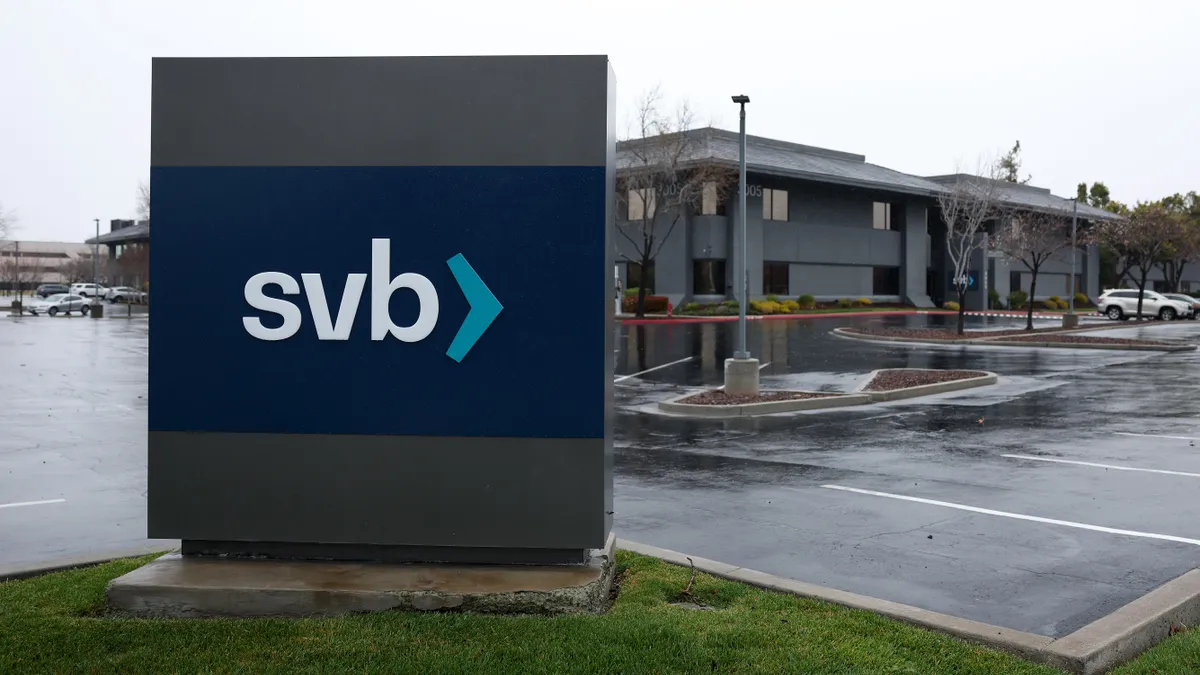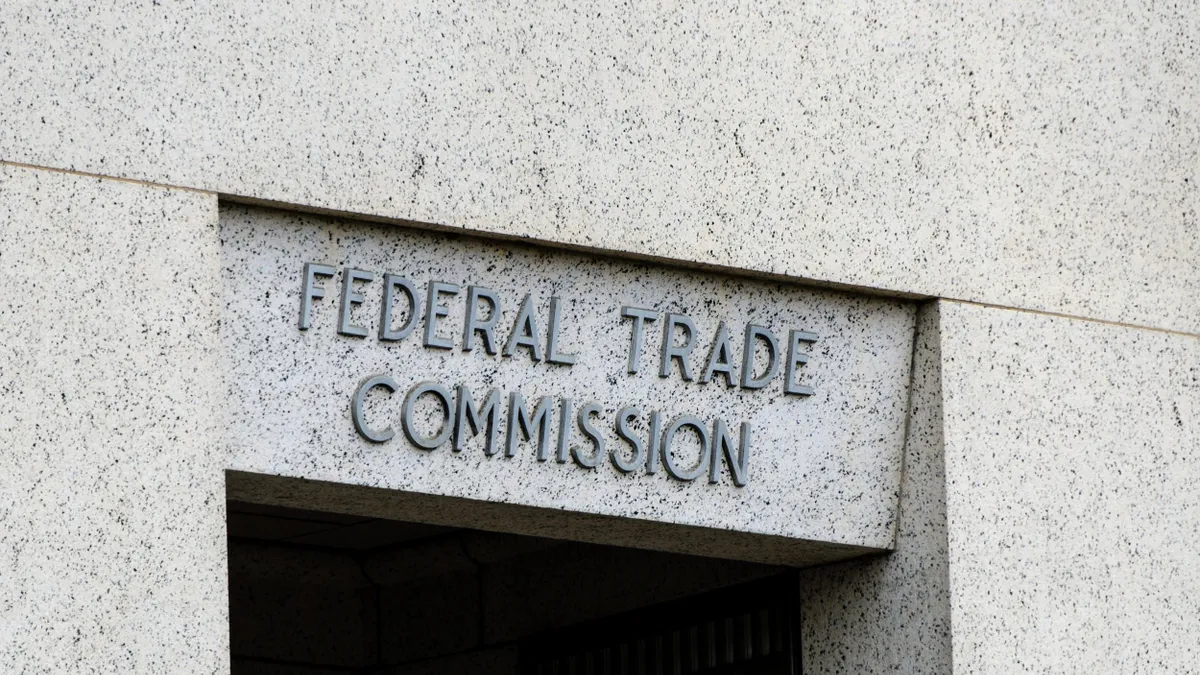Editor’s note: This story is developing and will be updated.
Silicon Valley Bank has been closed and regulators have taken over the firm’s deposits, the Federal Deposit Insurance Corp. announced Friday.
The embattled bank was closed by the California Department of Financial Protection and Innovation, which appointed the FDIC as receiver, the federal regulator said.
At the time of closing, the FDIC said it immediately transferred all of the SVB’s insured deposits to the newly created Deposit Insurance National Bank of Santa Clara.
SVB’s shuttering comes two days after the startup- and tech industry-focused firm’s Wednesday announcement that it lost nearly $2 billion in the sale of U.S. treasuries and mortgage-backed securities, and amid reports the firm was seeking a buyer after an unsuccessful attempt to raise capital in a Thursday offering, CNBC reported Friday.
SVB’s stock was down 68% on Friday in pre-market trading, before trading was halted, marking the second consecutive day the bank’s share prices have plummeted.
The bank has been grappling with a sharp drop in deposits over the past year, as higher interest rates and inflation have significantly battered the technology sector.
In an attempt to stem liquidity problems, SVB was forced to sell all of its available-for-sale bonds at a $1.8 billion loss, the bank announced Wednesday, adding it planned to raise $2.25 billion in fresh capital by selling stock.
That announcement caused its stock to tumble 60% by end of trading Thursday as spooked startup clients began to withdraw deposits from the bank.
SVB CEO Greg Becker tried to quell fears on a call with top venture capitalists Thursday, urging customers to “stay calm,” sources told The Information and CNBC.
“[SVB has] ample liquidity to support our clients with one exception: If everyone is telling each other SVB is in trouble, that would be a challenge,” Becker reportedly said on the call. “I would ask everyone to stay calm and to support us just like we supported you during the challenging times.”
Prominent venture capital firms, including Peter Thiel’s Founders Fund, however, have instructed their portfolio companies to pull cash from the bank, according to Bloomberg.
Venture firms Coatue Management, Union Square Ventures and Founder Collective have also advised startups to withdraw funds, the wire service reported.
Some firms, however, have been unable to wire funds out of the bank, sources told TechCrunch on Thursday.
One customer said account access controls are in “view only” mode, preventing users from conducting withdrawals or wires, while others on Twitter said they were unable to log into the bank’s online banking portal, the publication reported.
SVB did not immediately respond to Banking Dive’s request for comment.
Contagion fears?
SVB's announced capital raise coincides with the recent collapse of crypto bank Silvergate, the timing of which likely exacerbated the situation at SVB, said Giorgio Daher, a former bank regulator and fintech adviser at Gartner.
“The situation with SVB is critical and it will be a warning sign for the rest of the banking sector to review their fixed income holdings,” Daher said. “If the SVB situation continues to deteriorate, it could lead to contagion in the banking sector.”
Bank stocks have tumbled in the wake of SVB’s Wednesday announcement. The S&P 500 bank index fell nearly 6% on Thursday, its biggest one-day drop in over two years, according to Reuters.
Wall Street analysts on Thursday and Friday said the firm’s dire situation is unlikely to spread widely throughout the banking system, CNBC reported.
In a note to clients, Morgan Stanley characterized the bank’s issues as “highly idiosyncratic,” according to Yahoo Finance.
“We do not believe there is a liquidity crunch facing the banking industry, and most banks in our coverage have ample access to liquidity,” the investment bank wrote.
The bank’s troubles, however, threaten to leave a lasting impact on the struggling tech and VC sectors, Daher said.
“SVB's situation epitomizes the popping of the second tech bubble and will have broad ramifications across the technology, startup and VC space,” he said.
Fintechs see opportunities
As word of SVB’s liquidity issues spread throughout the tech and VC world, startup-focused neobanks and fintechs have taken to Twitter to advertise alternative banking options for SVB customers looking to move their funds.
“For founders concerned with the stability of their banking provider, we are working to fast track new @BrexHQ Business Account applications,” Henrique Dubugras, founder fintech Brex tweeted Thursday. “Funds are fully backed by US-government securities, or kept in FDIC-insured bank accounts.”
Immad Akhund, co-founder and CEO of Mercury, tweeted his neobank is working to prioritize consumers looking to open accounts quickly, adding his direct messages and emails “are going a little crazy.”
Arc, which offers debt funding and digital banking services to software-as-a-service startups, also took to Twitter to promote its “safer banking alternative” amid the SVB collapse.
“The tech world woke up to some shocking news in tech banking today, and founders are spooked,” the fintech tweeted, while touting businesses can open an Arc account in “under 10 minutes.”
Traditional firms have also seen an influx of interest from SVB customers.
JPMorgan Chase has received dozens of inquiries from new clients asking to move funds from SVB to the New York-based bank, Bloomberg reported, citing a person familiar with the matter.
Rajeev Behera, CEO of accounting and treasury fintech Every, took to Twitter on Thursday to promote his firm’s ability to help SVB customers open accounts with BNY Mellon, writing the company is “already transferring for several YC seed->series B companies.”
In a separate tweet that took a swing at Mercury, the CEO encouraged firms to “park funds in an established institution instead of a Mercury which creates bank accounts in a smaller community bank called Evolve.”
















